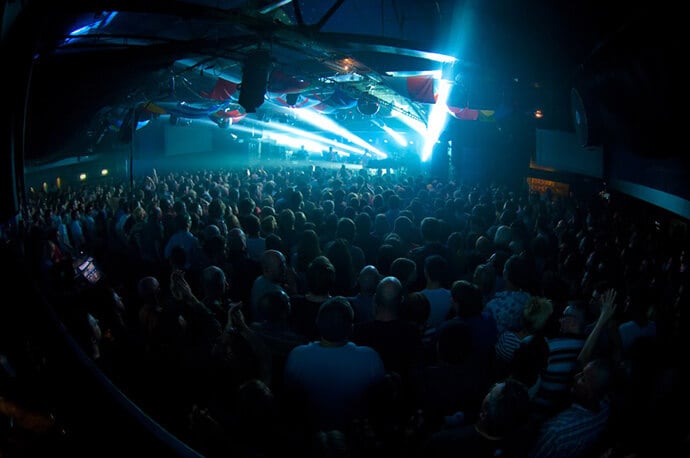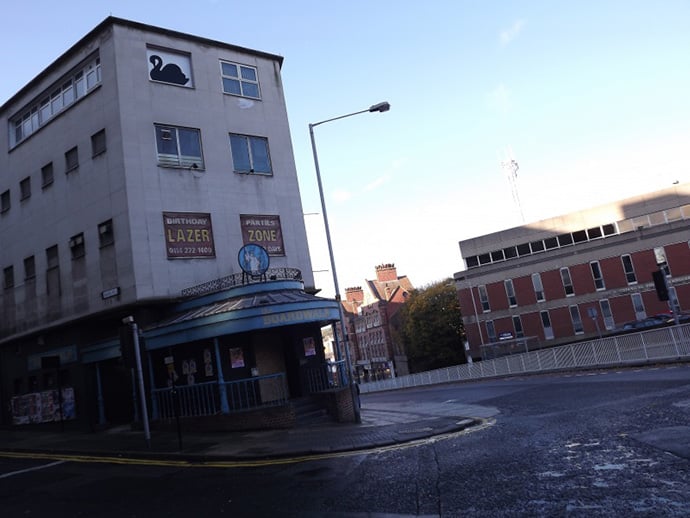Holly Stittle explains why, now more than ever, we should all get behind our smaller independent venues.
Back in 2009 I went to the Sheffield Corporation for the first time with a few friends. We’d originally planned to see one of the support acts that night, but sadly they had quit the tour a few weeks prior. Still, we decided to keep our tickets and go to see Madina Lake anyway. We spent the whole day waiting in line to secure a place near the front barrier, making new friends with the people around us and eagerly awaiting the doors to open at 7pm. When that time came everyone bolted like racehorses past the ticket scanners to get as close to the stage as possible and hang on to that precious spot. What came next was an unforgettable experience. We could feel the pulse of the speakers, the band was in our faces, we were jumping around and singing along to every word in a big crowd of people doing the same. By the time the final encore ended we were out of breath and in serious need of a shower, but this is when I truly fell in love with live music.
Fast forward to 2014, when I went to see Fall Out Boy (for the second time) at the Newcastle Arena. They played an amazing show, my friend and I still had a lot of fun… but something just wasn’t the same. We’d bought our seating tickets a few months before hand and got to the venue only minutes after the doors opened. The queue had gone by the time we got there, so we just went and sat right down in our allocated seats. There was no rush of getting through those doors, or securing that place we’d waited all day for. The view was great, but everything was so far away and we couldn’t get up and dance around without the risk of falling over the people sat in front. Much as I enjoyed myself, I couldn’t help but wish they were still a band that played small venues.

Crowd at The Leadmill
Don’t get me wrong, arena shows can be a lot of fun. There’s a bigger spectacle, the sound is clear no matter where you stand and if the support bands are bad you can nip to the beer stall. But the price can often be too much and there just isn’t the same atmosphere. If you want to get on the barrier you have to queue from the crack of dawn or even camp overnight. Even if you don’t want to wait outside from 9am for a club gig you can always push for a better view by the end of the night. One of the biggest benefits of intimate gigs is just how close you can actually get to the bands. Not only is the stage within reach from the front rows, but you can often find a few members hanging around afterwards for a quick photo or even a brief chat. I didn’t think I’d get to meet (former My Chemical Romance guitarist) Frank Iero until his current band played at Leadmill, and talking to Thursday’s vocalist Geoff Rickly after a show at Corp is possibly my fondest gig memory. Actually getting a chance to meet your favourite bands can be a dream for dedicated music fans, and getting to hang out with them at the bar or merch stand is a lot easier than creeping around the tour bus or paying for VIP Meet-and-Greets.
Club gigs are a real experience that truly brings music alive, but sadly they may not be around for much longer. Small music venues in the UK are under threat as rent gets higher and licensing laws get tighter. London alone has lost around 40% of its small venues in recent years and the rest of the UK is following a similar pattern. Famous venues like the Cockpit in Leeds and The Boardwalk in Sheffield have closed their doors for good, much to the dismay of many live music fans. Currently the UK music industry generates £3.8billion in revenue and without small venues this would crash significantly. Arena shows can charge a lot more for tickets, but the majority of live bands aren’t arena-filling megastars! Small venues give new artists a platform to perform to new audiences, find a fanbase and perfect their craft. Besides, who would have heard of the Arctic Monkeys if they hadn’t played that first show at The Grapes? The flourishing DIY music scene needs these smaller venues to survive too and local clubs like The Rocking Chair and West Street Live help keep this going.

The Sheffield Boardwalk which closed in 2010
While arenas may give you those convenient seats and better sound, nothing can beat the real atmosphere of throwing yourself around in a tiny club with your favourite band right in your face. Music lives in the grassroots bars and dingy nightclubs, where so many bands and artists took their first steps and we can’t lose this. Next time you want a great night out take a look at somewhere like Yellow Arch Studios, The Washington or The Harley – and do your bit to help save small venues for generations of music fans.
